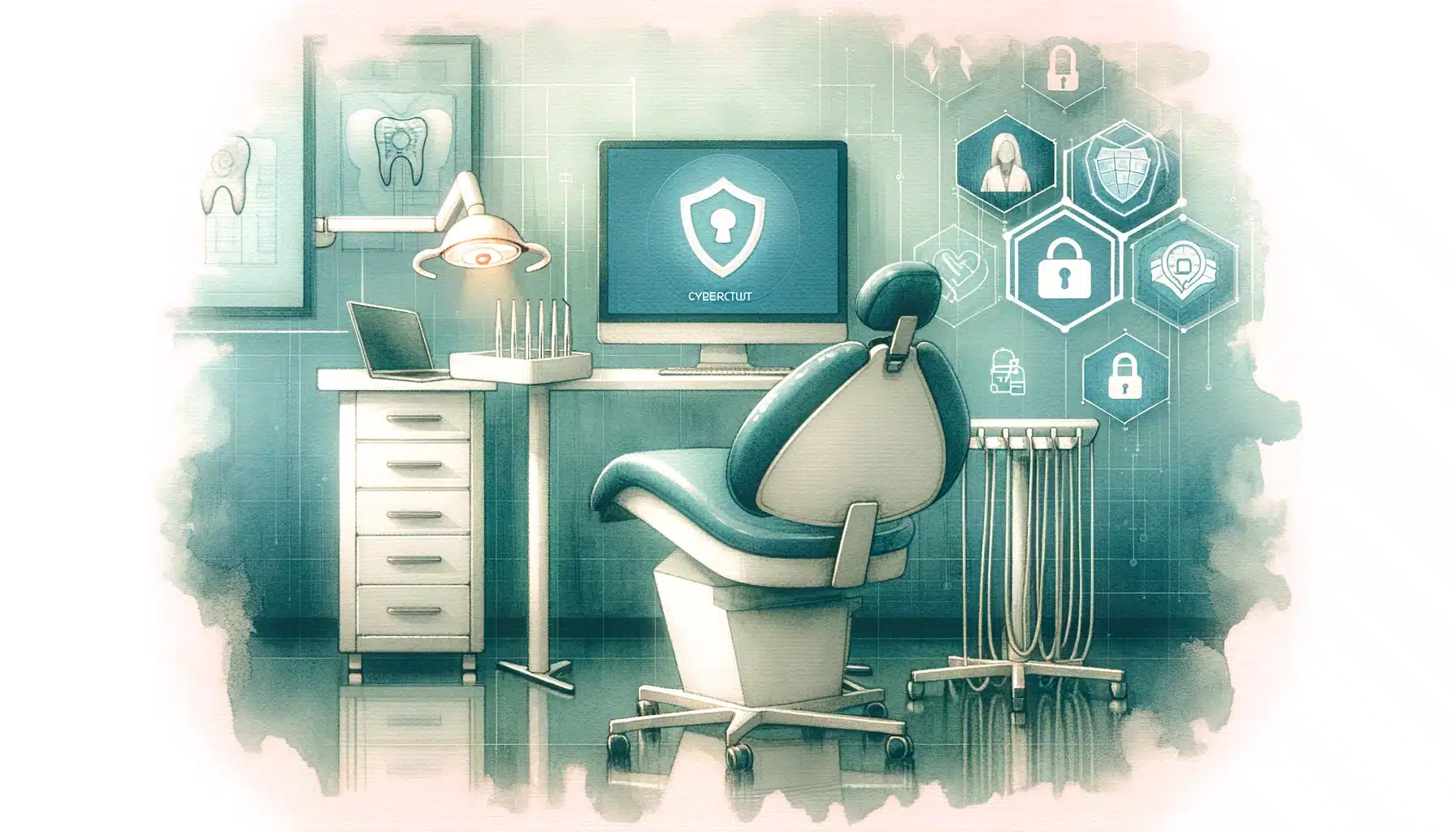With the increased usage of computers in dental offices, hackers have a golden opportunity to steal sensitive patient data. In fact, 47% of healthcare computer security breaches happen in small businesses, such as private dentistry practices that work on their own. That’s a scary number that should make every doctor nervous.
Fortunately, this guide covers the best ways to keep your dental IT clinic’s info safe. All dentist offices should follow these practices, no matter how big or small they are.
Acknowledging The Importance of Data Security
Understanding why data security is important is the first thing you should do. Safeguarding sensitive data is the goal. You can always be attacked by hackers if you store private information or patient records online.
When you know what can happen after a security breach, you can see why strong protection is so important. This includes things like encryption, safe networks, system updates, and teaching your team about data safety. Keeping patient data safe is about privacy and trust. Focusing on data security will also help protect the reputation of your dental practice.
Invest In Reliable Security Software
Because hackers are getting better, it’s more important than ever to protect your dental practice’s computers with solid security software. There is a different amount of security for each option.
When picking software to protect your data and devices, getting antivirus and malware protection, a firewall, tools to find and stop hackers, and encryption is important.
Update your protection software often to stay safe from new threats. If performing all of these tasks seems too overwhelming, consider using a dental IT company that provides managed IT services. They will constantly monitor your systems to ensure safety. Are you interested in dentist software? Read our blog post about the best ones to find out what your choices are-:https://www.legendnt.com/blog-posts/top-dental-software-to-manage-your-practice/
Utilize Strong Passwords To Protect Online Access
Use strong passwords for everything you do online to keep your patients’ information safe. This includes your computer and any software or apps with patient information. A secure password is at least twelve characters long, includes capital and lowercase letters, numerals, and special characters, and varies in character types. Do not reuse passwords across accounts—that’s a recipe for trouble.
System protection is improved by using more than one way to prove who you are. This is safer because it needs to send a code to your phone before giving you access to important data. In summary, strong passwords and multiple ways of proving who you are make it harder for dishonest people to get into your dental computer equipment.
Encrypt Patient Data And Other Sensitive Information
Encryption is needed to keep patient info safe. Encryption makes private information into code that can’t be read, even if someone gets in. Storing patient records and other crucial data on your computer or in the cloud requires this. There is both symmetric and asymmetric encryption. An IT specialist can help you choose and configure one.
Place Firewalls Around the Systems
Firewalls are needed to protect dental IT systems. They keep people from getting into your internal network or the internet without permission. Think of them as careful guards who watch who comes and goes. They keep problems from getting into your network, kind of like security guards.
All dentist PCs, servers, and mobile devices need firewalls. This extra security prevents hackers from entering your network. Firewalls require updating. To stay up to date, firewall software needs to be changed often. So you can protect your oral computer equipment from new threats.
Educate Staff Members
Even if you use strong passwords, encryption, and firewalls, your employees still need to be trained in data security. If someone on the team makes a small mistake, info could get out. To keep your dentist’s office safe, make sure that everyone on staff knows about data security and how to deal with private data.
Regular training on how to handle data, find phishing emails, and control passwords can be helpful. One more way to keep your dental computer safe is to keep your team aware and alert.
Regularly Backup Data
It is very important to back up your data. You can get back lost patient data if you back it up and keep it safe on a regular basis. You can use cloud files or discs that you plug in. Talk to an IT expert or get in touch with a dental IT company for the best dental backup plan for your business.
Implement Access Control Measures
Restrict access so that only approved staff can read or change private patient data. Some examples of this are giving different levels of entry to staff members based on their role in the practice. Strict access controls stop internal data breaches and make sure that patient data is treated in an honest way.
Perform Regular Security Audits
Regular security checks are needed to keep the integrity of dental IT systems. An audit looks at the data security of your practice to find problems and ways to make it better. You may stay ahead of risks and keep patient data safe if you constantly review and change your security procedures.
Ending Note
Ultimately, legally and morally, patients’ data must be kept safe. You can protect the image of your dental practice by following these tips and spending money on reliable security. Furthermore, to stay ahead of cyber threats, don’t forget to stay alert and improve your protection. Stay aware and take action to keep your dental IT systems safe. It will be nice for your customers. Keep yourself safe by keeping your security measures up to date.



